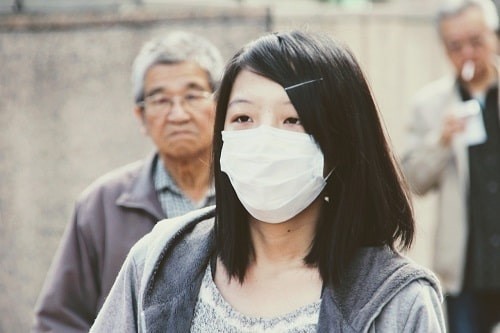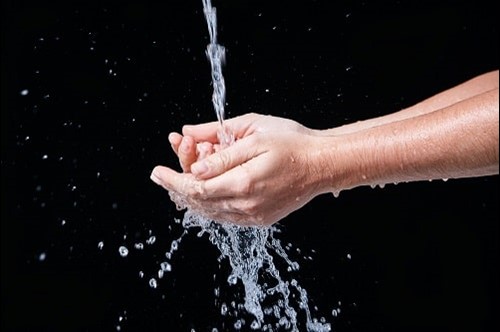There is a bat somewhere in Wuhan in China that currently has a lot to answer for – this winged creature is believed to have kicked-started an outbreak of COVID-19, the latest form of coronavirus. Talk about a butterfly effect!
Features
Coronavirus and the workplace: the latest
What we know about the disease
COVID-19 has not previously been seen in humans. On 31 December 2019, Chinese authorities notified the World Health Organisation (WHO) of an outbreak of pneumonia in Wuhan City, which was later classified as a new disease: COVID-19.
Its main symptoms are a cough, a high temperature and, in severe cases, shortness of breath. British Medical Journal, based on early clinical findings of patients in China, says that “the great majority of infected people will have a mild-to-moderate, but self-limiting illness – similar to seasonal flu.” The government also says that “so far the data we have suggests that the risk of severe disease and death increases amongst elderly people and in people with underlying health risk conditions.”
 On 31 December 2019, Chinese authorities notified the World Health Organisation (WHO) of an outbreak of pneumonia in Wuhan City
On 31 December 2019, Chinese authorities notified the World Health Organisation (WHO) of an outbreak of pneumonia in Wuhan City
"We do not yet have data on this disease"
These are the facts so far, based on research published by UK government Coronavirus Action plan, a guide to what to expect, on 2 March. However, the report says “we do not yet have entirely complete data on this disease” because it’s a new virus.
As of 10am on 4 March there are 93,090 confirmed cases, including over 12,500 outside China. World Health Organisation is releasing situation reports every day, and is rating the risk as ‘very high’ to all countries. In the UK, cases more than doubled overnight so that by 4 March, yesterday, cases stood at 85, up from 39 on 3 March. Government is looking to places like Italy, where cases have soared and is prepared for the worst case scenario, estimating that “based on experience with previous outbreaks, it may be that widespread exposure in the UK is inevitable.”
It’s especially concerning because we know so little about the disease. Miryam Wahrman, Professor of Biology at William Paterson University of New Jersey says: “We don’t know the mortality rate yet. This could be 20 to 30 times as lethal as ‘flu.” Not everyone has symptoms, and she says this is adding to the unease: “It’s very contagious. It feels like a great threat because once in a population it’s hard to get rid of it. You also might not have symptoms but you can be a vector so it feels very scary because it’s hidden and unknown.”
What employers should do – health and safety duties
The government has committed to “undertake dynamic risk assessments of potential health and other impacts, using the best available scientific advice and evidence to inform decision making.”
HSE has also been working with Public Health England and other government departments to draw up advice for employers to protect workers.
In this document COVID-19 advice for employers, government gives advice on:
- How to help prevent spread of all respiratory infections including COVID-19
- What advice to give to individuals who have travelled to specific areas
- Actions to take if staff come into contact with someone who is self-isolating or is a possible or confirmed case of COVID-19
 People need to keep their hands as clean as possible to prevent catching and spreading the infection
People need to keep their hands as clean as possible to prevent catching and spreading the infection
Safety, Health, Environment and Quality manager at the British Safety Council, Christine Dutton, says: “We’re advising people to keep their hands as clean as possible. If you’ve got a cold of any description, stay at home – you shouldn’t be in the office coughing and spluttering.”
COVID-19 symptoms we know are similar to ‘flu, and they can also be mild. So getting people not to come into work sick is important, but it’s going to require a change of mentality across UK workplaces, and a huge departure from the rife culture of presenteeism (or coming into work ill). “People will come to work – for many reasons and I’m afraid current cultures have encouraged it somewhat,” explains Christine.
“It’s across the piece – people are really loathe to recognize that a cold or ‘flu is quite a serious condition, and if you’re ill, that’s it you should just stay at home. But people don’t do that.”
Hygiene can help
Public Health England (PHE) recommends that following general cold and flu precautions can help prevent people from catching and spreading COVID-19. An important tip includes washing hands with soap and water often and Professor Wahrman, author of The Hand Book: surviving in a germ-filled world explains how to do this correctly. “Washing your hands is the first line of defence – that means if you’ve been out in a public arena, wash your hands for a minimum of 20 seconds, or the time it takes to sing happy birthday twice. Cover the palm and back of hand and between fingers. Dry with a clean paper towel.”
She adds that hand driers can be problematic, because, as some people will neglect to use soap, research has shown that when they use a drier it can just spray germs all over the room. “I’m not a fan of fans. Usually I have a few tissues in my pocket just in case. Dispose of the paper towel properly.”
PHE also says that the virus can survive on contaminated surfaces (after an infected person has touched it) for up to 72 hours (3 days). Professor Wahrman advises: “Touch the door knob [of the toilet door] with a paper towel. When I was a kid, my father was very germ aware – he taught me this, he was way ahead of his time.”
Sick pay – new laws
Boris Johnson has confirmed that employees self-isolating will get Statutory Sick Pay from the first day off work. It will be included in “emergency coronavirus legislation,” he said on 4 March. Government will also promote more home working, envisaging that “it is possible that up to one fifth of employees may be absent from work during peak weeks of the disease.”
Martha McKinley, Employment Law Solicitor and Senior Associate at Stephensons Solicitors LLP, says workplaces will have to be as flexible as they can: “Some workplaces will naturally lend themselves to do things like home working, to be flexible, to tell staff to take your laptop and work at home.”
Blair Adams, Partner at Winckworth Sherwood, says however that for workers in professions where face to face contact is required, such as hospital care, teaching and care for the elderly, it’s going to be challenging. “Organisations are going to be stretched in a variety of ways, including in terms of workforce planning. Technology has a big part to play for businesses that can impose remote working or foreign travel bans but for many organisations, remote working is impossible or only marginally significant.”
He said businesses could potentially have to deal with mass sickness absences, or who are unwilling to travel to work for fear of infection. “These novel circumstances will bring to the fore legal issues that do not arise in business as usual operations.”
Employers and their employees cannot help but be watching the situation, with so much available news and hopefully they will be supporting their workforce and themselves by following guidance. At British Safety Council, vulnerable individuals have been encouraged to work from home and all clients and employees entering the building will be reminded to do hand washing.
Christine says it’s a challenging situation as the risks and information are changing so rapidly, but we mustn’t lose sight of the main messages about hygiene and going home sick: “It has to be kept under review. That’s all we can do. Keep it simple and people do it, make it complicated and people get confused or forget."
She adds: "And there have to be all sorts of problems when there’s so much information. I think we can encourage the anxiety and we do that a lot in our society which we shouldn’t do – it isn’t good for our mental health at all.”
COVID-19 government advice for employers here
FEATURES

How to mitigate the hearing loss cost escalation tsunami
By Peter Wilson, Industrial Noise and Vibration Centre (INVC) on 06 February 2026
Employers need to adopt the latest and most effective noise risk evaluation and management measures, or face rapidly-rising compensation claims for noise-induced hearing loss at work.

Young drivers and work-related road risk: why employers must act now
By Simon Turner, Driving for Better Business on 06 February 2026
Young drivers have a higher risk of being involved in road collisions due to factors such as their inexperience, so when employing them to drive for work, it is vital they receive the right support to help them grow into safe professionals behind the wheel.

Financial stress: why and how it affects workplace safety
By Chloe Miller, freelance writer on 06 February 2026
Financial worries can lead to cognitive impairment that increases the risk of workplace accidents, so it’s essential employers provide financial education and confidential support for workers who may be struggling with problems like debt and unexpected living expenses.



